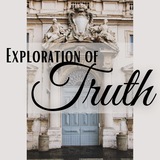Forwarded from Canadian Curiosities
Found this meme on Facebook. In a local group. Plenty of people in the thread chiming in.
Vaccinated and non. Both having a great little debate about the topic. I was genuinely impressed to witness that. I didn't say anything. Just stayed a fly on the wall and watched the little hamsters work overtime.
We may not be where we should be yet. But its very clear that the journey is still unfolding.
Watching that debate unfold really gave me hope that people aren't as afraid to ask questions they never thought to ask before. 🔥😎🔥
@canadiancuriosities
Vaccinated and non. Both having a great little debate about the topic. I was genuinely impressed to witness that. I didn't say anything. Just stayed a fly on the wall and watched the little hamsters work overtime.
We may not be where we should be yet. But its very clear that the journey is still unfolding.
Watching that debate unfold really gave me hope that people aren't as afraid to ask questions they never thought to ask before. 🔥😎🔥
@canadiancuriosities
👏1
The Earth Without the Moon
The period when the Earth was Moonless is probably the most remote recollection of mankind. Democritus and Anaxagoras taught that there was a time when the Earth was without the Moon.
Aristotle wrote that Arcadia in Greece, before being inhabited by the Hellenes, had a population of Pelasgians, and that these aborigines occupied the land already before there was a moon in the sky above the Earth; for this reason they were called Proselenes.
Apollonius of Rhodes mentioned the time “when not all the orbs were yet in the heavens, before the Danai and Deukalion races came into existence, and only the Arcadians lived, of whom it is said that they dwelt on mountains and fed on acorns, before there was a moon.”
…
https://www.varchive.org/itb/sansmoon.htm
The period when the Earth was Moonless is probably the most remote recollection of mankind. Democritus and Anaxagoras taught that there was a time when the Earth was without the Moon.
Aristotle wrote that Arcadia in Greece, before being inhabited by the Hellenes, had a population of Pelasgians, and that these aborigines occupied the land already before there was a moon in the sky above the Earth; for this reason they were called Proselenes.
Apollonius of Rhodes mentioned the time “when not all the orbs were yet in the heavens, before the Danai and Deukalion races came into existence, and only the Arcadians lived, of whom it is said that they dwelt on mountains and fed on acorns, before there was a moon.”
…
https://www.varchive.org/itb/sansmoon.htm
GENESIS 1:16 – EARTH WITHOUT A MOON?
Although I fail to see how (also in view of the context), Job 25:5 can be translated “before (there was) a moon”, it is especially Psalm 72:5 which clearly cannot be referred to for support. Velikovsky translates “before (the time of) the moon”. In Hebrew the word libnay is used, which literally means “in the face of”, “in front of”, and so primarily means “before” in a local sense.
It is indeed sometimes used in a temporal sense also, but this is not the common use. Now in Psalm 72:17 the same word is used in connection with the Sun and should, if Dr. Velikovsky’s translation of verse 5 is correct, be translated there the same way. This would mean that there has also been a historical period of time when the Earth was without a Sun. Psalm 72 therefore does not support Dr. Velikovksky’s thesis.
It is a pity, however, that Dr. Velikovsky dismisses the first chapter of Genesis as a myth, a tale brought down from exotic and later sources. Dr. Velikovsky, in doing this, follows the lead of Bible-critics of the uniformitarian-evolutionist school. It was students of this school who also dismissed Dr. Velikovsky’s discoveries as exotic and mythical. Yet Genesis 1 leaves room for Dr. Velikovsky’s thesis that the earth has been without a moon in historical times.
…
http://lewisiana.nl/bibleknotsandjunctions/bible/earthwithoutamoon/
Although I fail to see how (also in view of the context), Job 25:5 can be translated “before (there was) a moon”, it is especially Psalm 72:5 which clearly cannot be referred to for support. Velikovsky translates “before (the time of) the moon”. In Hebrew the word libnay is used, which literally means “in the face of”, “in front of”, and so primarily means “before” in a local sense.
It is indeed sometimes used in a temporal sense also, but this is not the common use. Now in Psalm 72:17 the same word is used in connection with the Sun and should, if Dr. Velikovsky’s translation of verse 5 is correct, be translated there the same way. This would mean that there has also been a historical period of time when the Earth was without a Sun. Psalm 72 therefore does not support Dr. Velikovksky’s thesis.
It is a pity, however, that Dr. Velikovsky dismisses the first chapter of Genesis as a myth, a tale brought down from exotic and later sources. Dr. Velikovsky, in doing this, follows the lead of Bible-critics of the uniformitarian-evolutionist school. It was students of this school who also dismissed Dr. Velikovsky’s discoveries as exotic and mythical. Yet Genesis 1 leaves room for Dr. Velikovsky’s thesis that the earth has been without a moon in historical times.
…
http://lewisiana.nl/bibleknotsandjunctions/bible/earthwithoutamoon/
